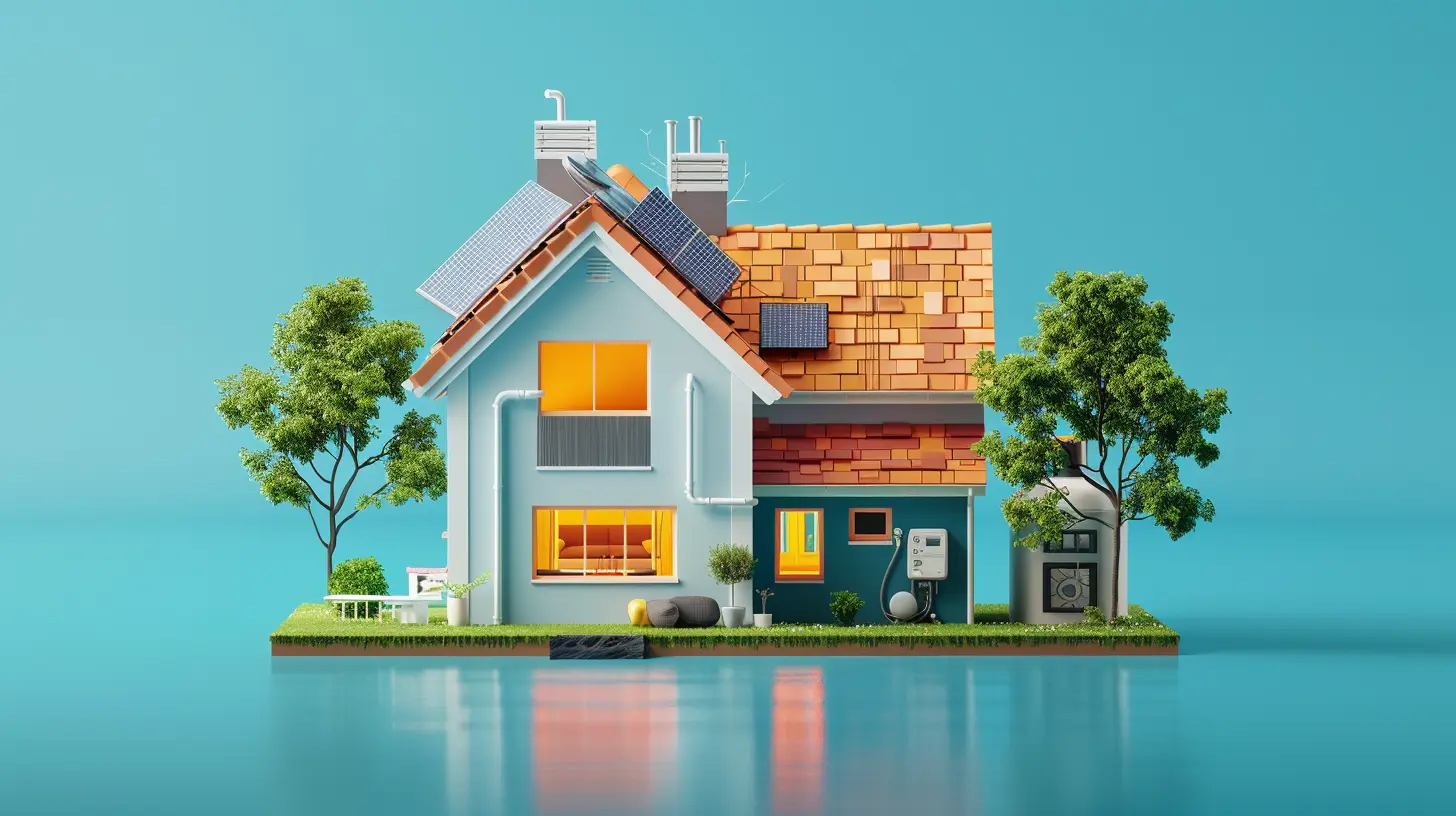How to Keep Up with Rising Utility Bills
1 June 2025
Are your utility bills creeping up month after month? You're not alone. With inflation, increased energy demand, and unpredictable weather patterns, it's no surprise that utility costs are hitting new highs. The good news? You don’t have to take these rising costs lying down. With some smart strategies, you can trim your bills and keep more money in your pocket.
In this guide, we’ll break down practical, actionable, and simple ways to combat rising utility costs without sacrificing comfort.

Why Are Utility Bills Going Up?
Before we dive into solutions, let’s address the elephant in the room—why are utility bills rising in the first place?1. Inflation – The cost of living is increasing, and energy costs aren’t immune.
2. Increased Demand – More people working from home means higher electricity and water usage.
3. Supply Chain Issues – Rising fuel costs and supply shortages have driven up energy costs.
4. Weather Changes – Extreme heat and cold push people to use more heating and cooling, driving up demand.
5. Aging Infrastructure – Some cities have outdated systems that cost more to maintain, and those costs get passed down to consumers.
Now that we know why bills are rising, let’s talk about what you can do about it.

1. Conduct a Home Energy Audit
First things first—before making any changes, you need to know where you're wasting energy. A home energy audit helps you identify areas where your home is inefficient.How to Perform a Quick Home Energy Audit
- Check for air leaks – Feel around windows and doors for drafts. Seal any gaps with weather stripping.- Inspect insulation – Poor insulation can cause heat loss in winter and excessive heat in summer. If your attic isn’t properly insulated, it may be time for an upgrade.
- Assess appliances – Older appliances consume way more energy. Consider replacing outdated refrigerators, washing machines, and dishwashers with energy-efficient models.
Even small inefficiencies can add up to significant costs over time. Fixing them now can prevent headaches later.

2. Be Smart with Heating and Cooling
Heating and cooling account for about 50% of your energy bill, so optimizing this area can make a huge difference!Easy Ways to Lower Your Heating & Cooling Costs:
- Use a programmable thermostat – Set it to automatically lower the temperature when you’re not home.
- Keep blinds and curtains closed during extreme weather – This keeps heat out in the summer and warmth in during winter.
- Use ceiling fans properly – In summer, set fans counterclockwise to push cool air down. In winter, set them clockwise to circulate warm air.
- Don’t block vents – Furniture blocking your air vents can force your HVAC system to work harder than necessary.

3. Reduce Water Waste
Water is another major expense, but many people don’t realize how much they waste daily.Water-Saving Hacks
- Fix leaks ASAP – A small dripping faucet can waste hundreds of gallons of water per year.- Switch to low-flow fixtures – Low-flow showerheads and faucets reduce water consumption without lowering water pressure.
- Use cold water for laundry – Heating water for laundry accounts for a major portion of energy use. Unless you’re dealing with serious stains, cold water works just fine.
- Limit shower time – A few minutes less in the shower can save gallons of water (and cut down on energy needed to heat it).
4. Upgrade to Energy-Efficient Appliances
Old appliances are energy hogs—plain and simple. Upgrading to Energy Star-certified appliances can help you slash electricity use without even thinking about it.What Should You Upgrade First?
- Refrigerator – Older models can suck up to 35% more energy than newer ones.- Washer & Dryer – Newer models use significantly less water and energy.
- Dishwasher – Energy-efficient dishwashers use less hot water, which translates to lower energy bills.
- Light bulbs – Swap incandescent bulbs for LED ones. LEDs use 75% less energy and last up to 25 times longer.
Yes, upgrading appliances requires an investment, but the long-term savings are worth it.
5. Be Mindful of "Phantom Energy"
Did you know that your electronics still use power even when they’re turned off? This is known as phantom energy, and it’s draining your wallet.How to Stop Phantom Energy Waste
- Unplug devices – If you're not using it, unplug it!- Use smart power strips – These automatically cut off energy to electronics when they're not in use.
- Turn off lights when leaving a room – It sounds simple, but many people forget to do this.
Little changes like these can make a noticeable difference on your electric bill.
6. Make Small Lifestyle Adjustments
Sometimes, small behavior changes can lead to big savings.Simple Habit Shifts That Save Money:
- Wash clothes in full loads only – Running your washer half-full wastes water and energy.- Air dry clothes when possible – Your dryer consumes a massive amount of energy. Hanging clothes to dry can cut costs by up to 30%!
- Use a microwave or toaster oven instead of your full-size oven – They consume much less energy and heat up food faster.
- Turn off the oven early – Your food will keep cooking with residual heat, and you’ll save energy.
None of these changes are drastic, yet they can shave hundreds of dollars off your yearly utility costs.
7. Consider Renewable Energy Options
If you want to take things to the next level, renewable energy can significantly reduce your dependence on traditional power sources.Options to Explore:
- Solar Panels – While the upfront cost is high, solar panels can dramatically reduce your electricity bills (sometimes even eliminating them altogether).- Wind Energy – If you live in a windy area, small-scale wind turbines could provide an alternative power source.
- Community Solar Programs – Not ready to commit to your own panels? Some areas offer shared solar programs where you can buy into a solar farm and receive credits on your power bill.
Renewable energy isn’t for everyone, but if it fits your budget and location, it’s a fantastic way to gain energy independence and cut costs long-term.
The Bottom Line
Rising utility bills are frustrating, but they don’t have to drain your wallet. By making smart choices—like optimizing your heating and cooling, reducing water waste, and upgrading to energy-efficient appliances—you can take control of your utility costs.Small changes add up, and the sooner you start, the more you’ll save. So, what will you do first to lower your next utility bill?
all images in this post were generated using AI tools
Category:
Cost Of LivingAuthor:

Audrey Bellamy
Discussion
rate this article
2 comments
Yvonne Blevins
Great article! Rising utility bills can be stressful, but your tips offer practical solutions. Staying informed and proactive can make a big difference in managing expenses. Thanks for sharing these helpful strategies!
June 18, 2025 at 3:37 AM

Audrey Bellamy
Thank you for your kind words! I'm glad you found the tips helpful for managing utility costs. Staying proactive really does make a difference!
Paula Young
In times of rising utility bills, embracing mindful consumption and exploring energy-efficient alternatives can make a significant difference. Small changes, like adjusting thermostat settings and using energy-saving appliances, not only ease financial strain but also contribute to a more sustainable future. Every effort counts toward a healthier budget and planet.
June 3, 2025 at 3:03 AM

Audrey Bellamy
Absolutely! Mindful consumption and energy-efficient practices can significantly reduce bills and promote sustainability. Every small change matters!


